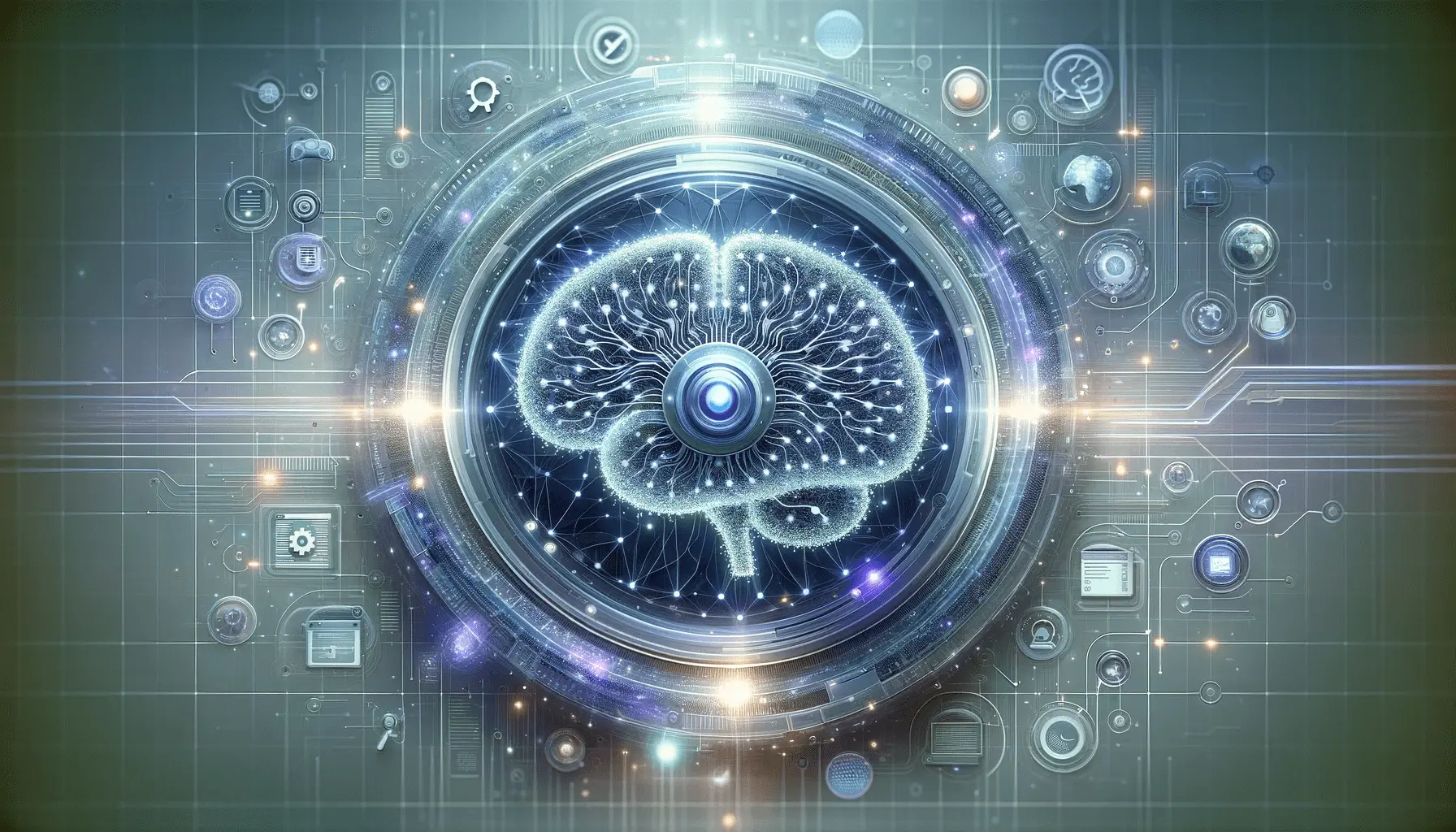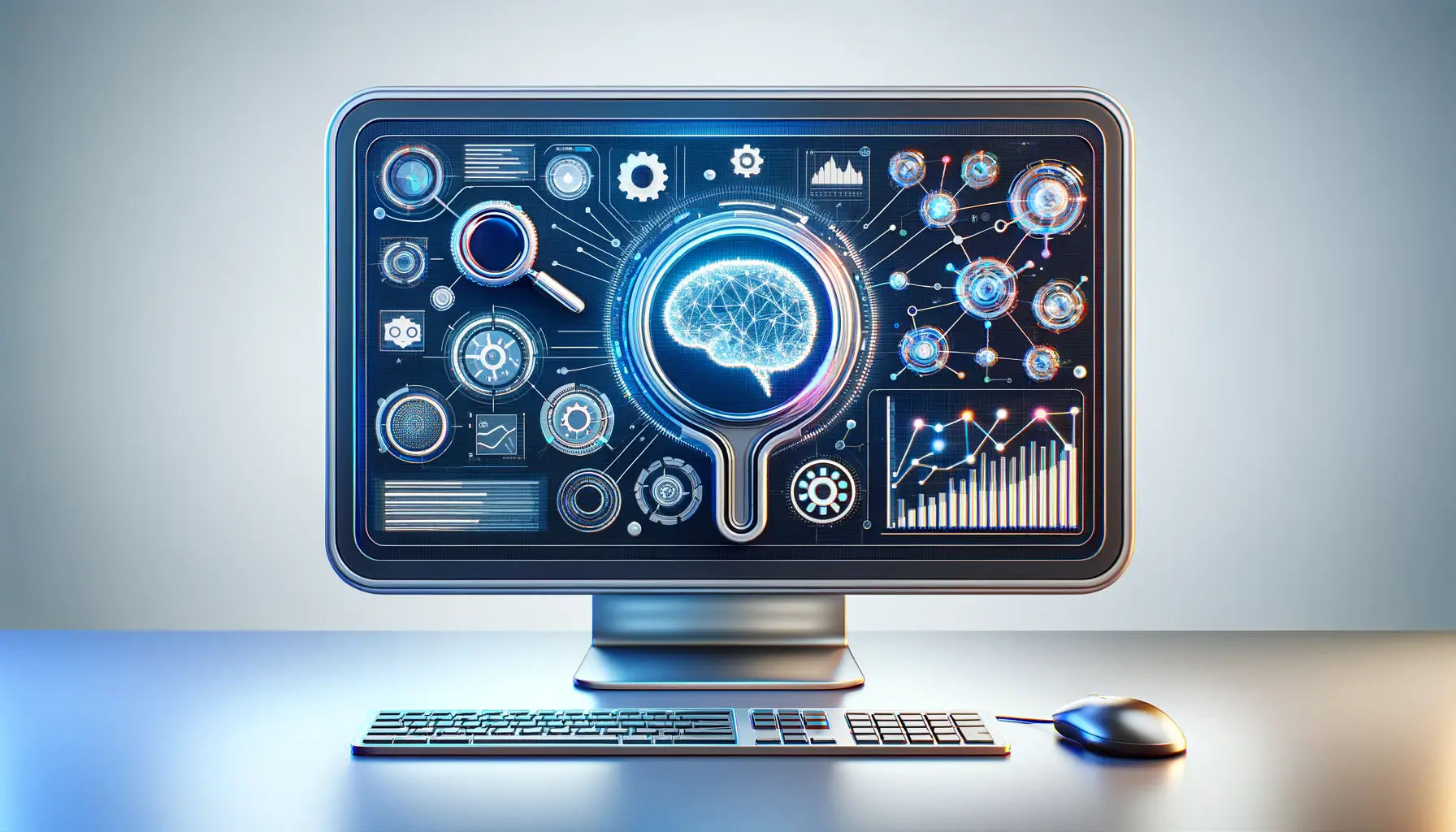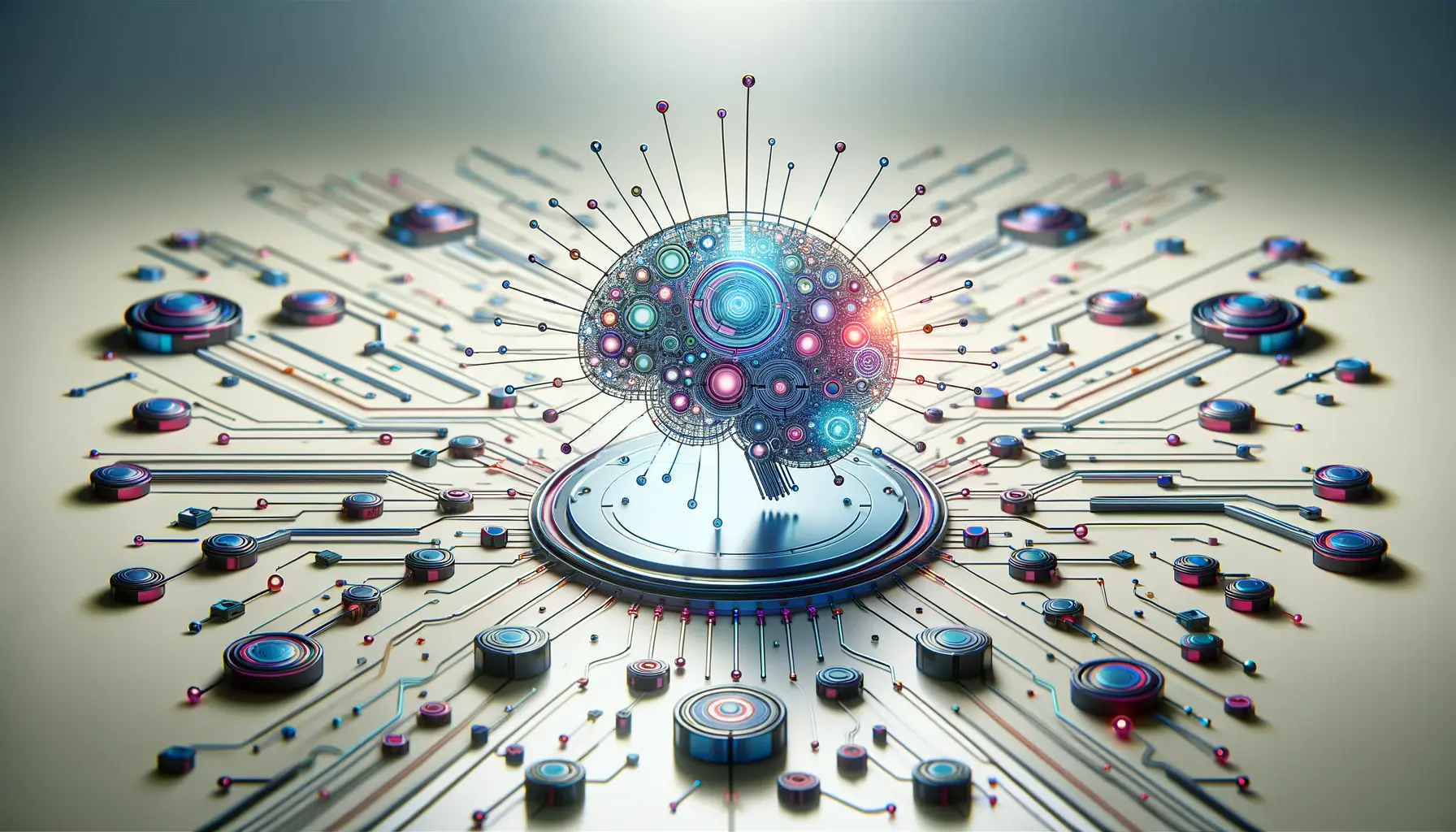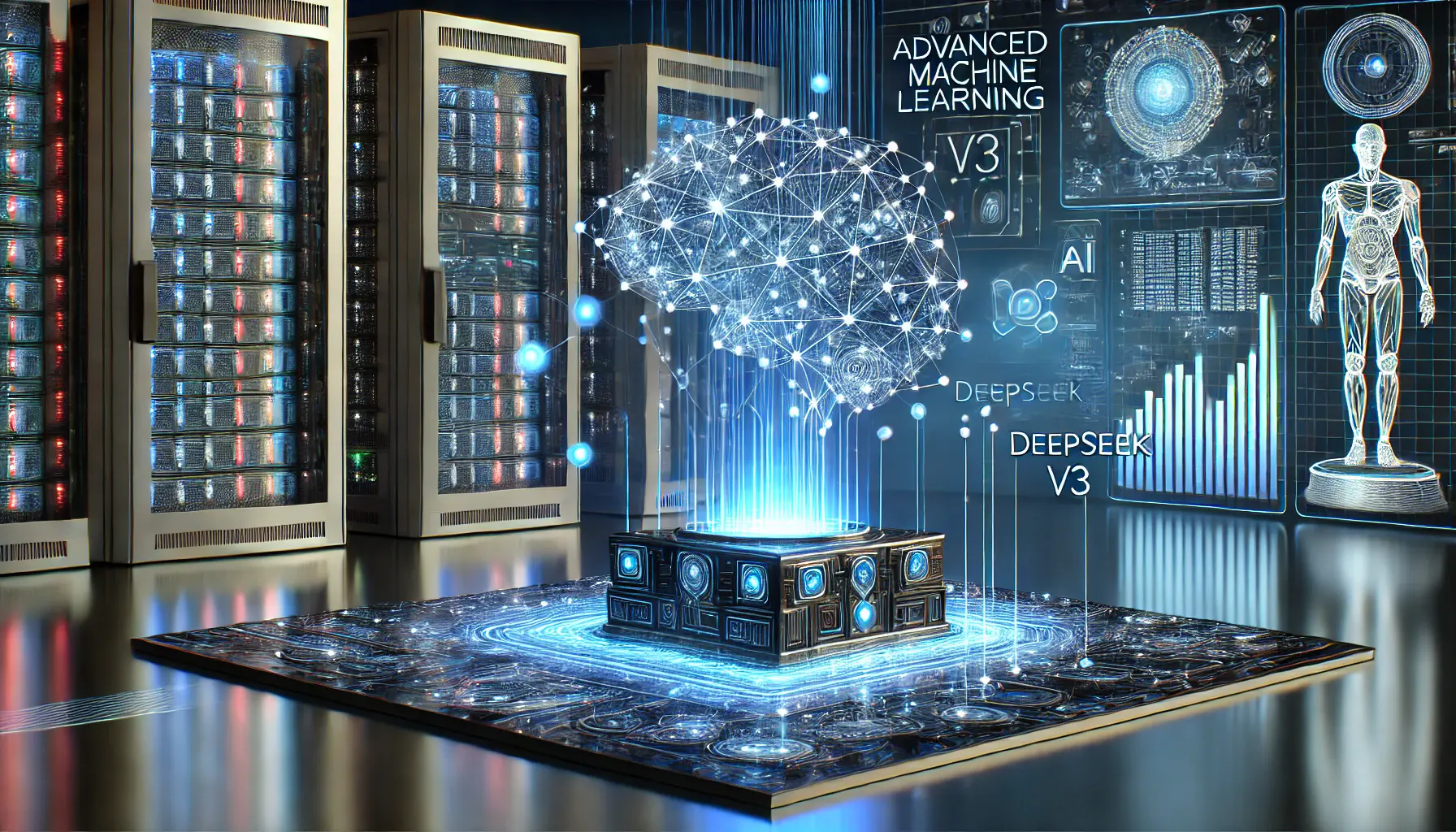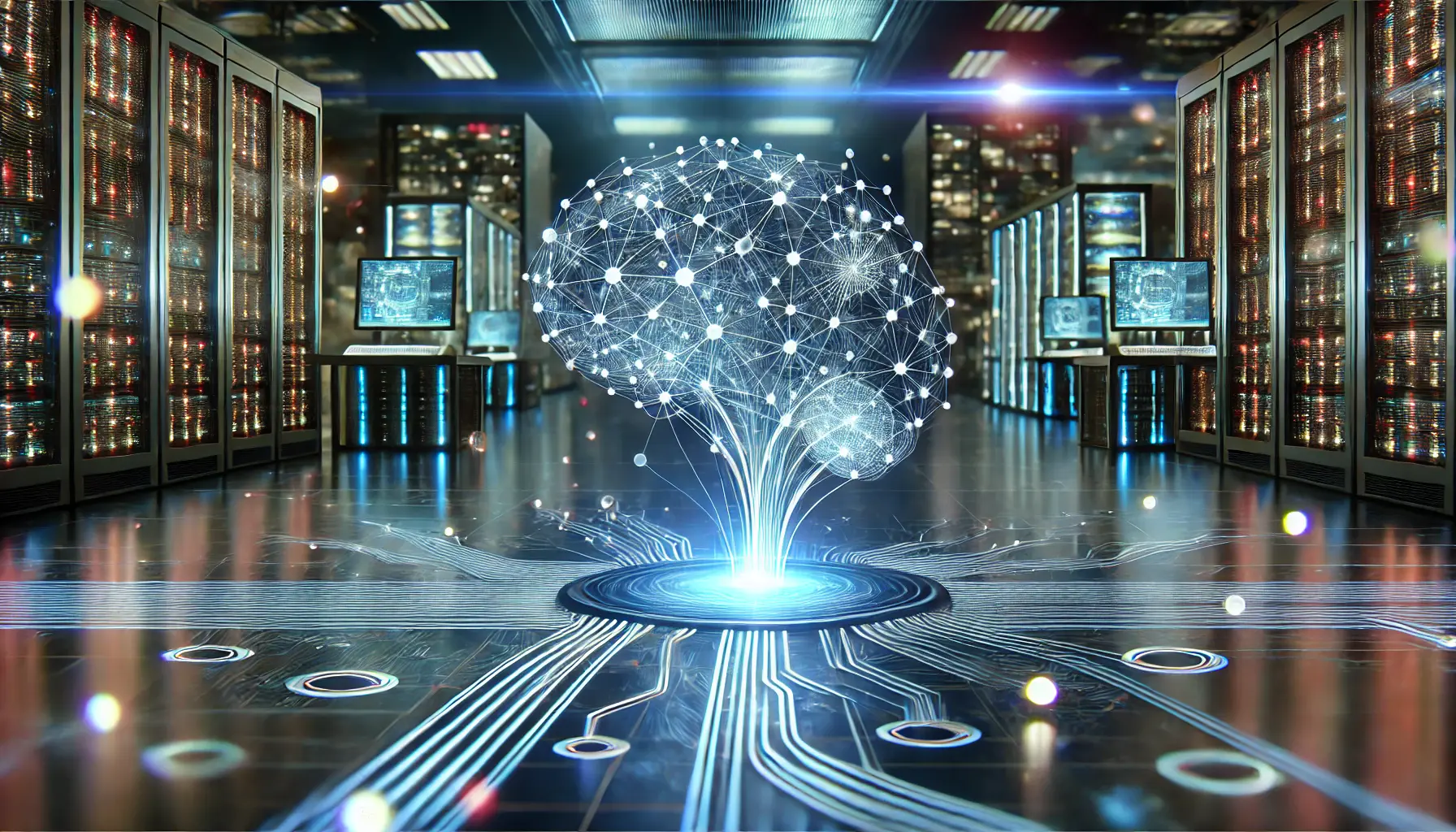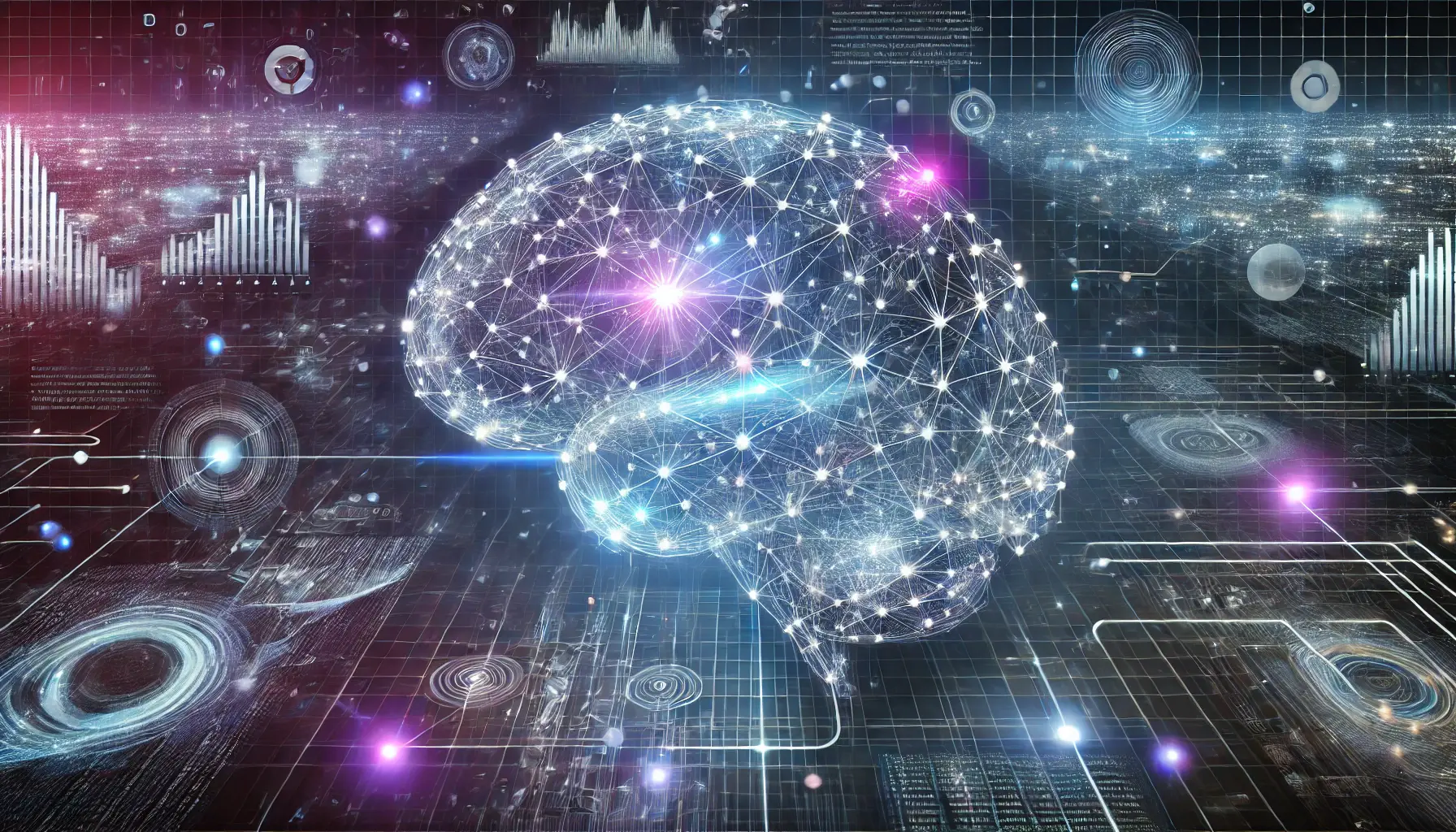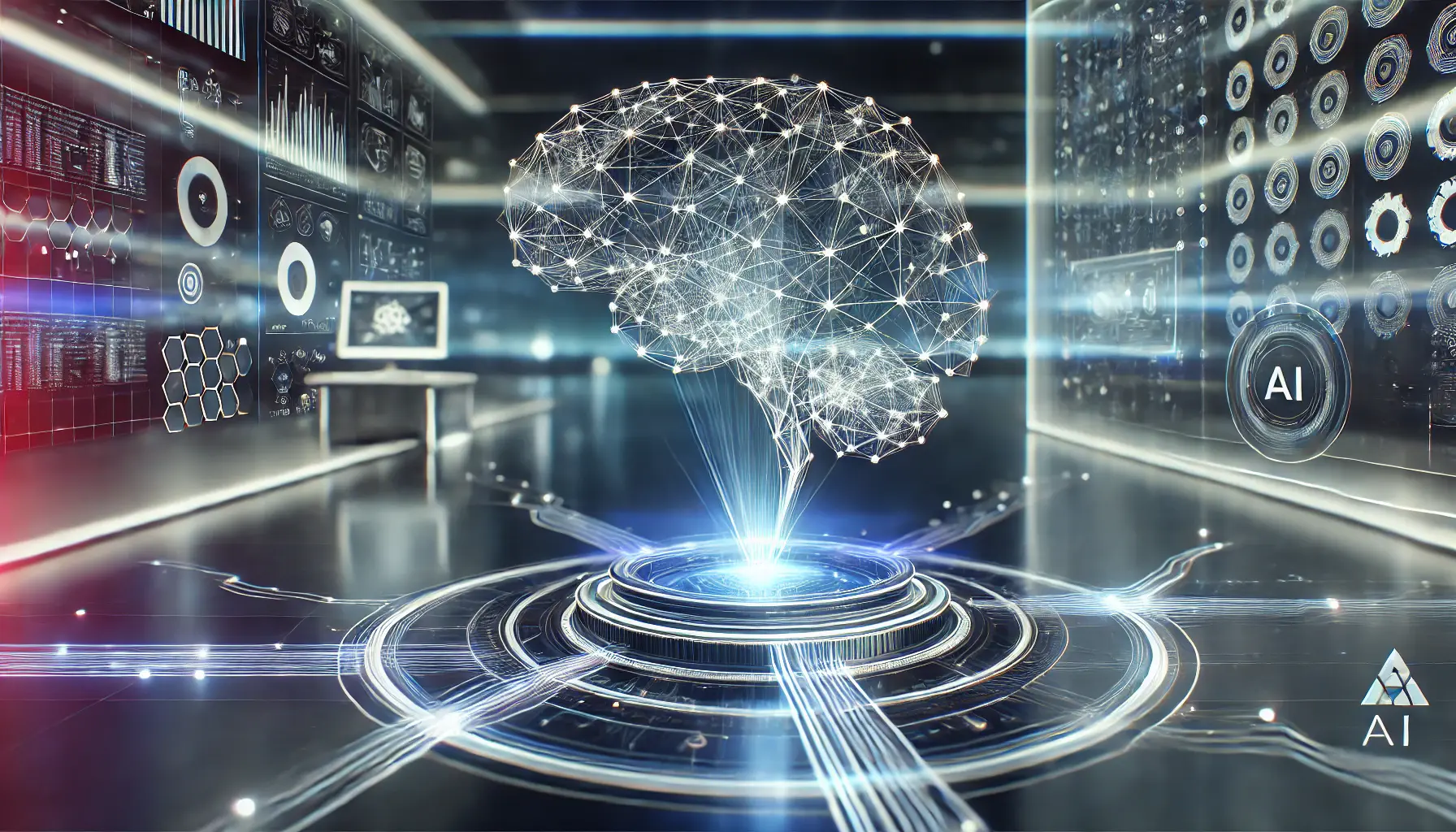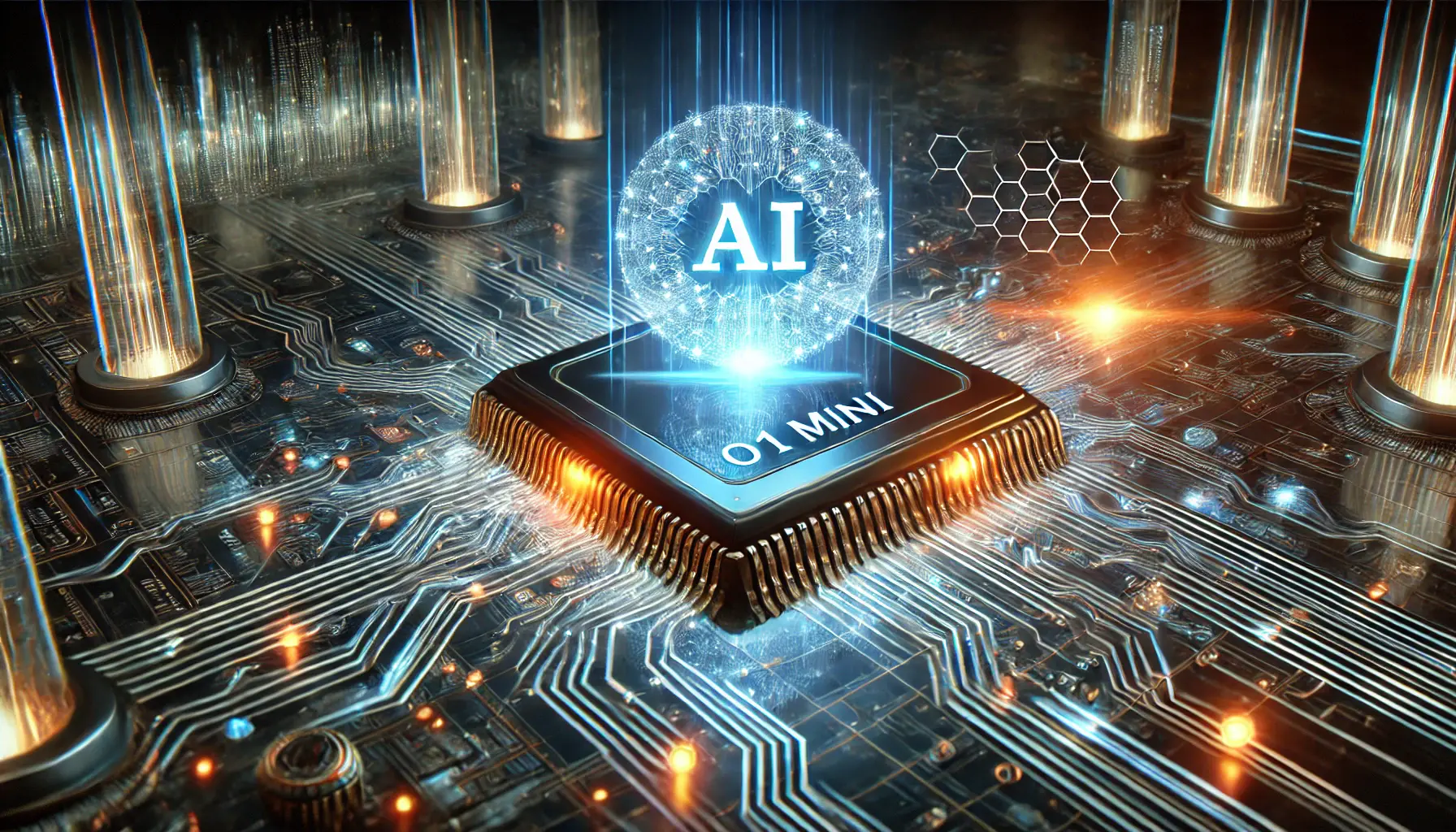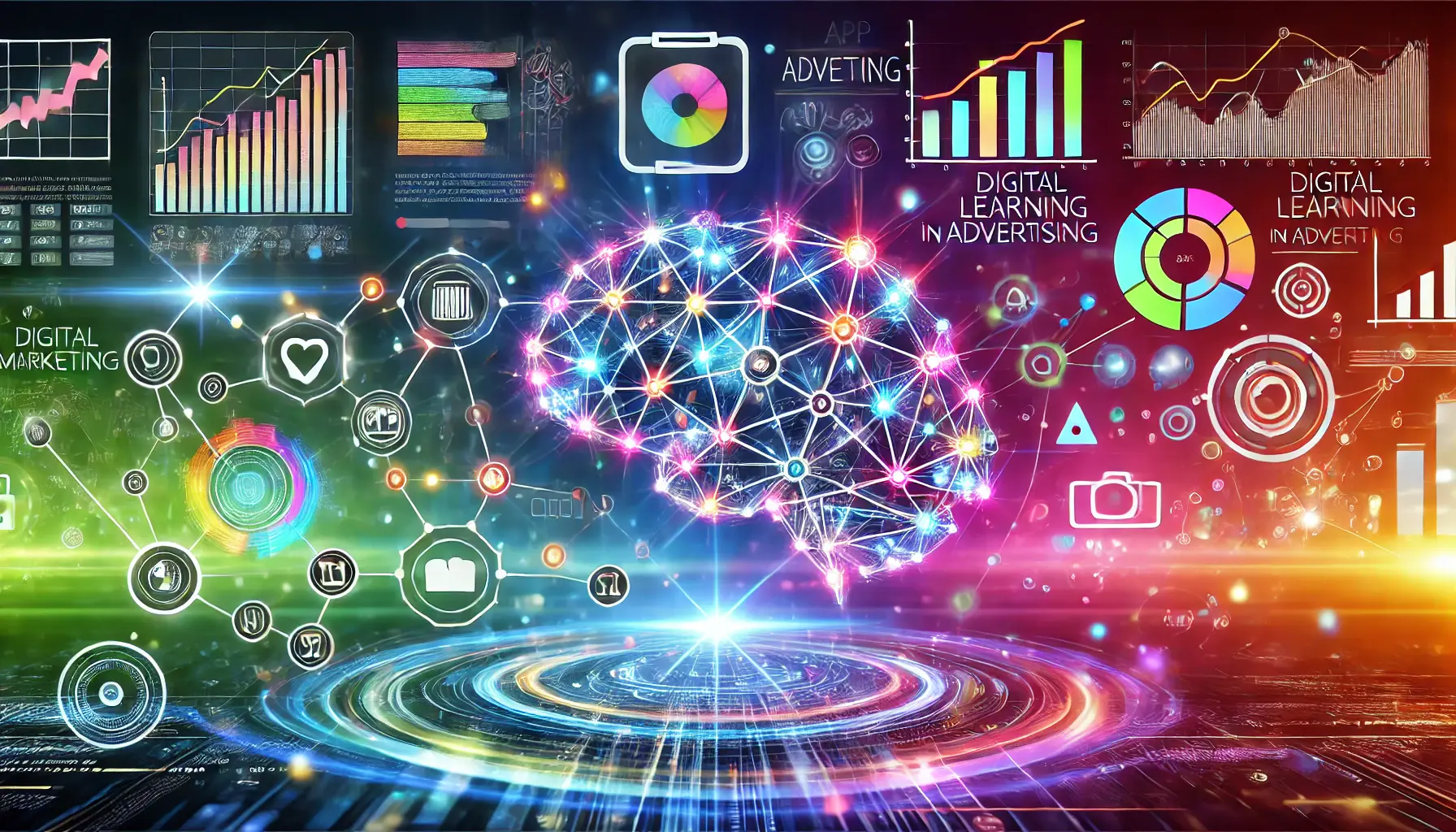The realm of Search Engine Optimization (SEO) is witnessing a transformative era with the integration of Artificial Intelligence (AI).
AI-Powered SEO is not just a buzzword; it’s a paradigm shift in how search engine optimization is strategized and implemented.
This article delves into the intricate relationship between AI and SEO, exploring how machine learning and AI technologies are reshaping the landscape of digital marketing and online search visibility.
AI’s role in SEO marks a significant departure from traditional optimization methods.
It introduces a level of data analysis, user experience enhancement, and content optimization that was previously unattainable.
This integration is not just about leveraging technology for better rankings; it’s about understanding and adapting to the evolving dynamics of search algorithms and user behaviors.
- The Evolution of SEO with AI Integration
- AI-Driven Content Optimization and Creation
- Technical SEO Enhancements Through AI
- Revolutionizing Link Building with AI
- Optimizing Local SEO with AI
- AI in Enhancing User Experience and Engagement
- The Future of AI in SEO: Trends and Advancements
- Embracing the Future of AI-Powered SEO
- AI-Powered SEO: Essential FAQs
The Evolution of SEO with AI Integration
The integration of AI into SEO practices has revolutionized the way marketers approach website optimization.
Gone are the days when keyword stuffing and backlink farming were enough to secure top rankings.
Today, AI-driven SEO focuses on a more holistic approach, emphasizing user experience, content relevance, and semantic search optimization.
One of the key aspects of AI in SEO is its ability to analyze vast amounts of data quickly and accurately.
This capability enables SEO professionals to gain deeper insights into search patterns, user behaviors, and content performance.
As a result, strategies can be fine-tuned to target specific audiences more effectively, enhancing both the visibility and relevance of web content.
Enhanced Keyword Research and Analysis
AI-powered tools have transformed keyword research from a guessing game into a data-driven science.
These tools can analyze search trends, predict keyword relevance, and even suggest long-tail phrases that are more likely to attract a targeted audience.
This level of analysis helps in creating content that resonates with users and meets their specific search intent.
Moreover, AI algorithms can identify semantic relationships between words, enabling the creation of content that not only targets primary keywords but also includes related terms and synonyms.
This approach aligns with the way modern search engines interpret and rank content, leading to more effective SEO strategies.
Personalized User Experiences
AI’s ability to process user data has opened new avenues for creating personalized online experiences.
By analyzing user interactions, preferences, and behaviors, AI-driven SEO tools can tailor content and recommendations to individual users.
This personalization not only improves user engagement but also increases the likelihood of conversions and repeat visits.
Personalization extends beyond just content.
AI can optimize website layouts, navigation, and even call-to-action placements based on user data, ensuring a seamless and engaging user experience.
This level of customization is crucial in today’s competitive online landscape, where user experience can make or break a website’s success.
AI-powered SEO is revolutionizing keyword research, enabling the creation of more relevant and engaging content that aligns with user intent and search engine algorithms.
As we continue to explore the impact of AI on SEO, it’s clear that the future of digital marketing lies in the intelligent use of technology to enhance user experiences and optimize content for both users and search engines.
The next sections will delve deeper into specific AI applications in SEO and their implications for marketers and businesses alike.
AI-Driven Content Optimization and Creation
The advent of AI in SEO has significantly altered the landscape of content creation and optimization.
AI’s ability to understand and process natural language has led to the development of content that is not only SEO-friendly but also highly relevant and engaging to the target audience.
AI tools in SEO go beyond traditional keyword insertion, focusing on the overall quality and relevance of the content.
This shift is crucial in an era where search engines prioritize user experience and content value over keyword density.
Automated Content Generation
AI-powered content generation tools are redefining how content is created.
These tools use natural language processing (NLP) to produce articles, blog posts, and web content that are not only well-written but also optimized for search engines.
The benefits of AI in content generation include:
- Speed and Efficiency: AI can generate content much faster than a human writer, allowing for quicker content turnaround.
- Scalability: With AI, businesses can scale their content production without compromising on quality.
- Consistency: AI ensures a consistent tone and style across all content, aligning with the brand’s voice.
Content Quality and Relevance
AI’s role in enhancing content quality and relevance is pivotal.
By analyzing user engagement metrics and search engine trends, AI tools can suggest improvements and optimizations to existing content.
This process includes:
- Keyword Optimization: AI identifies the most effective keywords and phrases, ensuring content is discoverable and relevant.
- Content Structuring: AI can suggest optimal content structures, including headings and subheadings, for better readability and SEO performance.
- User Engagement: By analyzing user behavior, AI can recommend content updates to improve engagement and reduce bounce rates.
Adaptive Content Strategies
AI-driven SEO tools enable the development of adaptive content strategies.
These strategies are responsive to changing market trends, user preferences, and search engine algorithms.
Key aspects include:
- Market Trend Analysis: AI tools can analyze market trends, helping businesses stay ahead of the curve with their content strategies.
- User Intent Understanding: AI’s ability to interpret user intent allows for the creation of content that meets specific user needs and queries.
- Competitive Analysis: AI can analyze competitors’ content strategies, providing insights for businesses to refine their own content approaches.
AI-driven content optimization focuses on enhancing the user experience by creating relevant, engaging, and high-quality content that aligns with both user needs and search engine criteria.
In the next section, we will explore how AI is transforming the technical aspects of SEO, further enhancing the effectiveness of digital marketing strategies.
Technical SEO Enhancements Through AI
AI’s influence extends beyond content creation and into the realm of technical SEO.
Technical SEO involves optimizing website infrastructure to improve search engine visibility.
AI has introduced innovative ways to enhance website performance, structure, and user experience, all of which are critical factors in SEO.
Site Performance Optimization
AI tools play a crucial role in optimizing website performance.
They analyze various performance metrics and suggest improvements to enhance site speed, responsiveness, and user experience.
Key areas where AI aids in site performance include:
- Page Load Speed: AI algorithms can identify elements that slow down page loading times and suggest optimizations for faster performance.
- Mobile Optimization: With mobile-first indexing, AI helps ensure websites are optimized for mobile devices, providing a seamless user experience.
- User Experience Analysis: AI can track user interactions on a website to identify and rectify usability issues, enhancing overall user experience.
Advanced Crawling and Indexing
AI enhances the crawling and indexing process, ensuring that search engines effectively discover and index web pages.
AI-driven tools can:
- Analyze Site Structure: AI evaluates a website’s structure, ensuring it’s conducive to search engine crawling.
- Optimize Sitemaps: AI can create and optimize sitemaps for better indexing of web pages.
- Identify and Fix Crawl Errors: AI detects and suggests fixes for crawl errors that might hinder a website’s search engine performance.
SEO Automation and Reporting
AI has significantly streamlined SEO processes through automation.
It automates routine tasks, allowing SEO professionals to focus on strategic planning and analysis.
AI’s role in SEO automation includes:
- Automated SEO Audits: AI can conduct comprehensive SEO audits, identifying issues and providing actionable recommendations.
- Data-Driven Insights: AI analyzes SEO data to provide insights into performance, trends, and areas for improvement.
- Reporting and Analytics: AI tools generate detailed reports on SEO performance, offering a clear view of a website’s search engine standing.
Leveraging AI for technical SEO not only enhances website performance but also ensures that websites are fully optimized for search engine algorithms, leading to improved visibility and rankings.
As we continue to explore the multifaceted impact of AI on SEO, the next section will focus on the role of AI in link building and off-page SEO strategies.
Revolutionizing Link Building with AI
Link building, a critical component of off-page SEO, has been significantly influenced by AI.
AI-powered SEO tools are reshaping how links are sourced, analyzed, and utilized to boost a website’s authority and search engine rankings.
Intelligent Link Prospecting
AI has transformed the process of link prospecting, making it more efficient and targeted.
AI-driven tools can:
- Analyze Link Opportunities: AI evaluates potential link-building opportunities, identifying high-authority and relevant sites for link placement.
- Personalize Outreach: AI can help tailor outreach messages to potential link partners, increasing the chances of successful link acquisition.
- Monitor Link Health: AI continuously monitors the health and quality of backlinks, alerting users to any issues that may affect SEO performance.
Enhanced Backlink Analysis
Backlink analysis is crucial for understanding a website’s link profile.
AI aids in this analysis by:
- Identifying Toxic Links: AI can detect harmful or spammy backlinks that might negatively impact SEO.
- Competitor Link Analysis: AI tools analyze competitors’ backlink profiles, providing insights for developing effective link-building strategies.
- Link Profile Optimization: AI suggests ways to optimize a website’s link profile for better search engine visibility and authority.
Automating Link Management
AI streamlines link management, automating various tasks to enhance efficiency.
This includes:
- Link Tracking: AI tools automatically track and report on the status of existing backlinks.
- Link Building Campaigns: AI can manage and optimize link-building campaigns, ensuring they align with overall SEO goals.
- Reporting and Insights: AI provides comprehensive reports on link-building efforts, offering valuable insights for future strategies.
AI’s role in link building extends beyond mere automation; it provides strategic insights and enhances the quality of link-building efforts, contributing to a stronger online presence and higher search engine rankings.
In the next section, we will delve into how AI is influencing local SEO and helping businesses enhance their local search presence.
Optimizing Local SEO with AI
Local SEO is crucial for businesses targeting specific geographic locations.
AI has brought about significant advancements in local SEO strategies, enhancing visibility and engagement for local businesses in search engine results.
Localized Content Creation
AI aids in creating content that resonates with local audiences.
This includes:
- Geo-specific Content: AI generates content tailored to local dialects, landmarks, and cultural references, enhancing relevance for local audiences.
- Local Keyword Optimization: AI identifies and integrates local search terms and phrases, improving local search visibility.
- Event-based Content: AI can create content around local events, trends, and news, making it more engaging for the target audience.
Enhancing Local Search Listings
AI plays a significant role in optimizing local business listings for search engines.
This includes:
- Listing Optimization: AI ensures that business listings are complete, accurate, and optimized for local search algorithms.
- Reputation Management: AI monitors and manages online reviews and ratings, crucial for local SEO.
- Local Citation Building: AI identifies opportunities for local citations, enhancing the business’s online presence and credibility.
Personalized User Experiences
AI personalizes user experiences based on location, offering tailored content and recommendations.
This includes:
- Location-based Offers: AI provides users with offers and promotions relevant to their current location.
- Localized User Interfaces: AI customizes website interfaces based on the user’s location, enhancing engagement and user experience.
- Local Market Insights: AI gathers and analyzes data on local market trends, helping businesses adapt their strategies accordingly.
AI’s impact on local SEO is profound, offering businesses the tools to create more targeted, relevant, and engaging content for local audiences, thereby improving their visibility and competitiveness in local search results.
Next, we will explore the role of AI in enhancing user experience and engagement, further solidifying its importance in modern SEO practices.
AI in Enhancing User Experience and Engagement
AI’s capabilities extend to improving user experience (UX) and engagement, which are vital components of effective SEO strategies.
By leveraging AI, websites can offer more personalized, intuitive, and user-friendly experiences, leading to higher engagement rates and improved SEO performance.
Personalization at Scale
AI enables personalization at an unprecedented scale, tailoring the user experience to individual preferences and behaviors.
This includes:
- Customized Content Recommendations: AI analyzes user behavior to recommend relevant content, enhancing engagement and time spent on the site.
- Dynamic Website Interfaces: AI adjusts website layouts and elements based on user preferences and interactions, creating a more personalized browsing experience.
- User Behavior Analysis: AI tracks and analyzes user actions, providing insights for further personalization and optimization.
Enhanced Search Functionality
AI improves website search functionality, making it easier for users to find the information they need.
This includes:
- Intelligent Search Algorithms: AI-powered search engines understand user intent, delivering more accurate and relevant search results.
- Voice Search Optimization: With the rise of voice assistants, AI optimizes content for voice search, catering to a growing user base.
- Visual Search Capabilities: AI enables visual search features, allowing users to search using images or visual elements.
Interactive AI Features
AI enhances user engagement through interactive features such as:
- Chatbots and Virtual Assistants: AI-powered chatbots provide instant assistance, improving user engagement and support.
- Interactive Tools: AI-driven tools like quizzes, calculators, and recommendation engines engage users and provide personalized experiences.
- Feedback and Survey Analysis: AI analyzes user feedback and survey responses, offering insights for UX improvements.
Neglecting AI in enhancing user experience and engagement can lead to missed opportunities in SEO, as search engines increasingly prioritize sites that offer superior user experiences.
In the final section, we will discuss the future of AI in SEO, highlighting the potential advancements and trends that are shaping the future of digital marketing.
The Future of AI in SEO: Trends and Advancements
The integration of AI in SEO is not just a current trend but a glimpse into the future of digital marketing.
As AI technology continues to evolve, its impact on SEO strategies and practices is expected to grow, leading to more sophisticated and effective optimization techniques.
Emerging AI Technologies in SEO
The future of AI in SEO is likely to be shaped by emerging technologies such as:
- Advanced Machine Learning Algorithms: These will further refine SEO strategies by predicting search trends and user behaviors more accurately.
- Enhanced Natural Language Processing: Improved NLP will lead to more sophisticated content creation and optimization, closely mimicking human language.
- Augmented Reality (AR) and Virtual Reality (VR): AR and VR technologies will offer new ways to engage users, potentially influencing SEO strategies.
AI-Driven Predictive Analytics
Predictive analytics powered by AI will play a crucial role in SEO.
This includes:
- Market Trend Prediction: AI will analyze data to predict market trends, enabling businesses to stay ahead in their SEO strategies.
- User Intent Prediction: AI will become more adept at predicting user intent, allowing for more targeted and relevant content creation.
- SEO Performance Forecasting: AI tools will provide more accurate forecasts of SEO campaign performance, aiding in strategic planning.
SEO Automation and Integration
AI will lead to greater automation and integration in SEO processes.
This includes:
- Automated SEO Audits and Adjustments: AI will automate more aspects of SEO audits and implement adjustments in real-time.
- Integrated Marketing Strategies: AI will enable seamless integration of SEO with other digital marketing channels for cohesive strategies.
- Enhanced Data Integration: AI will facilitate the integration of various data sources, providing a more comprehensive view of SEO performance.
The future of AI in SEO is poised to bring about more personalized, predictive, and efficient optimization strategies, fundamentally changing how businesses approach search engine visibility and user engagement.
As AI continues to advance, staying abreast of these trends and advancements will be crucial for businesses and marketers looking to maintain a competitive edge in the ever-evolving landscape of digital marketing and SEO.
Embracing the Future of AI-Powered SEO
As we stand at the crossroads of a digital revolution, the integration of AI in SEO practices has become more than just a technological advancement; it’s a strategic imperative for businesses and marketers.
AI-Powered SEO is not merely a tool; it’s a dynamic, evolving force reshaping the landscape of digital marketing and search engine optimization.
The future of SEO, deeply intertwined with AI, promises a realm of possibilities that were once considered beyond reach.
Key Takeaways and Future Outlook
The journey through the realms of AI-Powered SEO has unveiled several key insights:
- AI’s role in content creation and optimization is revolutionizing how we approach SEO, making it more efficient and user-centric.
- Technical SEO enhancements through AI are ensuring that websites are not only search-engine friendly but also offer superior user experiences.
- AI’s impact on link building and local SEO strategies is leading to more targeted and effective optimization efforts.
- The future of AI in SEO is bright, with emerging technologies and predictive analytics set to offer even more sophisticated optimization strategies.
As we look towards the future, it’s evident that AI-Powered SEO will continue to evolve, bringing forth new tools and methodologies.
The key to success in this AI-driven SEO landscape will be the ability to adapt, innovate, and integrate AI seamlessly into SEO strategies.
Businesses and marketers who embrace this change will find themselves at the forefront of a new era of digital marketing excellence.
Final Thoughts on AI-Powered SEO
In conclusion, AI-Powered SEO is not just a fleeting trend but a fundamental shift in how we approach search engine optimization.
It offers a blend of precision, efficiency, and personalization that traditional SEO methods cannot match.
As AI continues to advance, its integration into SEO practices will become more profound, offering unprecedented opportunities for businesses to enhance their online visibility and engage with their audience more effectively.
The future of SEO is undeniably intertwined with AI, and embracing this partnership is essential for any business looking to thrive in the digital world.
Want your website to top Google search rankings? Leave the SEO to our professional agency!
AI-Powered SEO: Essential FAQs
Delve into the world of AI-Powered SEO with these frequently asked questions, providing insights into how artificial intelligence is reshaping search engine optimization.
AI-Powered SEO refers to using artificial intelligence to enhance a website’s organic performance and search engine rankings.
AI improves SEO by automating data analysis, identifying user behavior trends, and optimizing content for better performance.
Yes, AI can generate SEO-friendly content by leveraging natural language processing and keyword optimization.
AI is highly effective in keyword research, identifying relevant and high-performing keywords for targeted content creation.
AI impacts local SEO by creating geo-specific content, optimizing local listings, and personalizing user experiences based on location.
Yes, AI enhances website user experience by personalizing content, improving search functionality, and offering interactive features.
AI plays a crucial role in link building by automating link prospecting, analyzing backlink quality, and managing link-building campaigns.
AI is expected to continue evolving in SEO, with advancements in machine learning and predictive analytics shaping future strategies.
